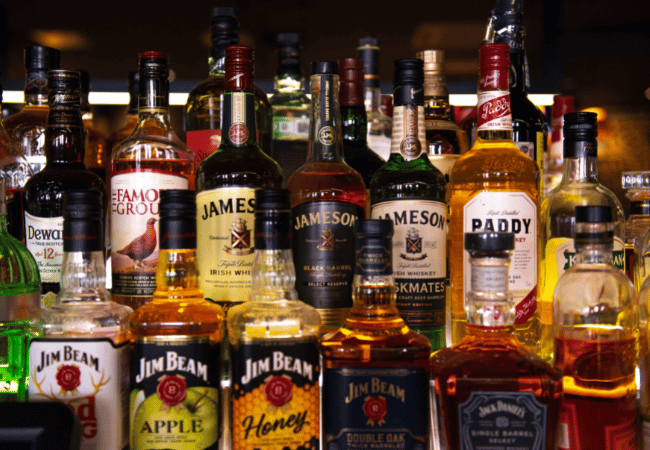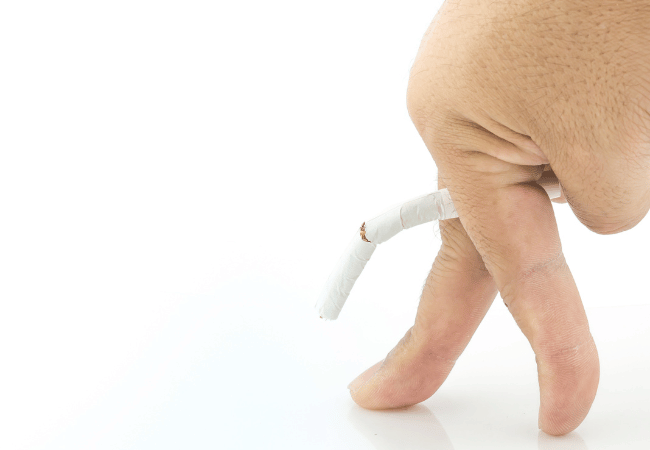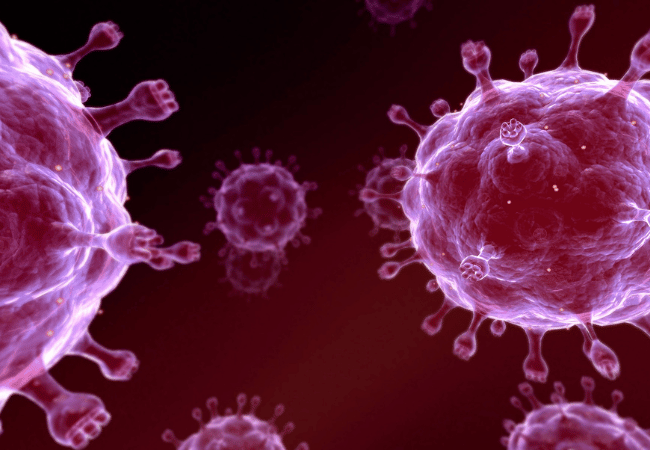Erectile dysfunction from alcohol? Let's see!
Part One of our two-part series into alcohol and sex, the effects of alcohol consumption on sexual performance explored how moderate consumption could help improve our sexual experiences.
As we all know, too much of a good thing can quickly become a bad thing, and the same holds true for alcohol and sex.
Part Two of our series will take a closer look at excessive alcohol consumption and its negative impact on our sexual performance. So if you have been asking whether alcohol can cause erectile dysfunction, this just might be your answer. Read on.

How much is too much?
The amount of alcohol that can negatively impact sexual performance varies from person to person.
In Australia, the National Health and Medical Research Council defines excessive alcohol consumption as more than two standard drinks per day for men and women, and no more than four standard drinks on any single occasion.
It's important to be mindful of your alcohol consumption and pay attention to how your body responds. If excessive drinking starts to negatively impact your sexual performance including in the areas listed below, it may be time to reassess your habits and make changes for the better.

Safety and Consent
One of the primary concerns with excessive alcohol consumption is its effect on our ability to make safe and informed decisions.
Alcohol impairs our judgement and can lead to a lack of awareness and control over our sexual behaviour.
This can result in individuals engaging in risky sexual behaviour, including unprotected sex and sexual acts without fully understanding or giving consent (King & Fisher, 2010).
Prioritizing safety and consent in all sexual experiences should always be the top priority.
If alcohol is causing you to compromise on this, it's time to re-evaluate your drinking habits and make necessary changes.
By doing so, you'll ensure that you're having the best and most enjoyable sexual experiences possible, while also keeping yourself and your partner/s safe and respected.
Difficulty Maintaining an Erection
The ability to maintain an erection can be impacted by excessive alcohol consumption due to its effect on the central nervous system and hormones.
Alcohol interferes with the normal functioning of neurotransmitters, leading to decreased sexual desire and arousal (Gazzaruso, Solerte, Pujia, Giusti, & Maggi, 2000).
Additionally, excessive alcohol consumption can lower testosterone levels, further impairing erectile function (Gupta, Kiyoshi, & Lue, 2008).
A study conducted in Australia found that high levels of alcohol consumption were associated with decreased sexual function and reduced ability to maintain an erection (Moyad & Ward, 2018). The study also found that heavy alcohol consumption was linked to an increased risk of erectile dysfunction (ED) in men.
So that means erectile dysfunction from alcohol is quite possible.
Decreased Sexual Satisfaction
Numerous studies have linked excessive alcohol consumption and a decline in sexual satisfaction and pleasure.
Alcohol impairs our ability to communicate and decreases physical performance, leading to a decrease in sexual satisfaction (Nelson, Thomas, & Mark, 2013).
The effects of alcohol on sexual satisfaction can be significant, as it not only affects individuals but also their partners (Nelson, Thomas, & Mark, 2013).
In addition, excessive alcohol consumption can reduce intimacy and emotional connection during sexual experiences, leading to a decrease in overall enjoyment (Nelson, Thomas, & Mark, 2013).
Decreased Sexual Desire
Excessive alcohol consumption has been shown to have a negative impact on sexual desire or libido.
Research has found that both men and women who drink excessive amounts of alcohol may experience a decrease in sexual desire and sexual interest (Gupta, Kiyoshi, & Lue, 2008).
This may be due to the sedative effects of alcohol, which can lead to fatigue and decreased energy levels, as well as the impairing effects on cognitive and motor function (Gupta, Kiyoshi, & Lue, 2008).
Additionally, excessive alcohol consumption has been shown to increase levels of anxiety and depression, which can also contribute to decreased sexual desire and libido (Moyad & Ward, 2018).
Increased Risk of Contracting Sexually Transmitted Diseases
The impaired judgement and reduced inhibitions that come with excessive alcohol consumption increase the likelihood of contracting an STI when engaging in sexual activity.
Engaging in risky sexual behaviour, such as unprotected sex or sexual acts without fully understanding the potential consequences can have long term effects on our sexual health. (Centers for Disease Control and Prevention, 2021).
Alcohol can also make it more difficult to negotiate safer sex practices, such as condom use (Centers for Disease Control and Prevention, 2021).
In addition to this, it can also weaken the immune system, making it easier for individuals to contract an STI (Ford et al., 2002). after excessive alcohol consumption.
It is important to be aware of these risks and take steps to minimize them, such as using barrier protection and being mindful of our sexual behaviours when under the influence of alcohol.
REMEMBER!
Remember, the most important factor in a fulfilling and satisfying sexual experience is communication and consent between partners.
Whether you choose to drink or not, make sure you and your partner/s are on the same page and always prioritize safety and pleasure.
So, let’s raise a glass and say cheers to a happy and healthy sex life!

Sources:
Centers for Disease Control and Prevention. (2021). Alcohol and Public Health. Retrieved from https://www.cdc.gov/alcohol/fact-sheets/alcohol-use.htm
Ford, K., Lepkowski, J. M., Li, X., & Hughes, J. P. (2002). The impact of substance use on sexual risk behavior among people living with HIV/AIDS. AIDS Education and Prevention, 14(3), 201-214. doi:10.1521/aeap.14.3.201.22023
Gazzaruso, C., Solerte, B. S., Pujia, A., Giusti, C., & Maggi, M. (2000). Alcohol abuse and male sexual dysfunction. Journal of Endocrinological Investigation, 23(2), 94-98. doi:10.1007/bf03345166
Gupta, B. C., Kiyoshi, T., & Lue, T. F. (2008). The effects of alcohol on sexual function. The Journal of Urology, 179(3), 822-830. doi:10.1016/j.juro.2007.10.065
King, M., & Fisher, W. A. (2010). Alcohol and sexual consent. Current Directions in Psychological Science, 19(6), 357-361. doi:10.1177/0963721410385066
Moyad, M. A., & Ward, J. L. (2018). Alcohol consumption and sexual function in men and women. Translational Andrology and Urology, 7(1), 70-75. doi:10.21037/tau.2017.07.25
Nelson, R. J., Thomas, C., & Mark, K. P. (2013). Alcohol and sexual function. Alcohol Research & Health, 33(4), 386-393.
King, M., & Fisher, W. A. (2010). Alcohol and sexual consent. Current Directions in Psychological Science, 19(6), 357-361. doi:10.1177/0963721410385066
Melissa Hadley Barrett
